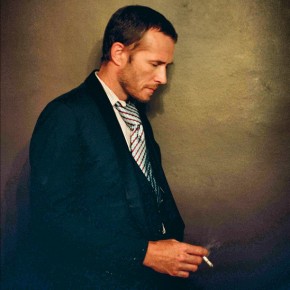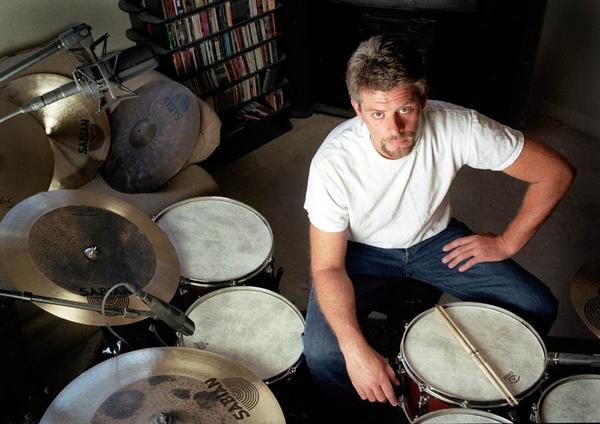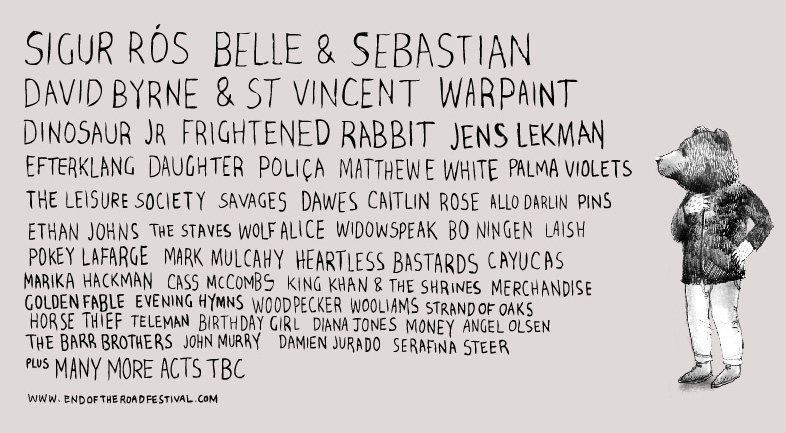Scott Weiland: “No volverá a haber un tiempo como los 90″
Scott Weiland: I don’t think there’ll ever be a time like the 90s

It’s good to get in the trenches and really connect with the fans.
You have to sort of feel passionate and feel real about [playing music], and be pragmatic that, unless you do it the real way, you’re not gonna make any money. I’m one of the luckiest people in the world that I was able to do what I fell in love with and be able to make a living doing it. But it’s a shame that the part that I love about it the most, which is the artistic part — creating, writing and producing music — there’s not that emphasis put on it anymore because the business people don’t make money from it. I still love making records, and I’m able to do it because I own my own studio, and I try to do it as much as possible. That’s what I really, really get off on. And I love playing live. I just don’t necessarily like being away from my fiancé and my kids for extended periods of time. That’s the only part about it that kind of gets to me. And having to wear dirty socks for three days in a row sometimes.
People would come up to me and say, «Scott, people really root for you.» I haven’t heard that in a long time, and I don’t know why.
It was a very special thing that people would say, and I would hear it all the time. But the interesting thing is that it’s been almost 11 years since I used drugs, and I don’t really hear it [anymore] except from my friends. There’s another side of it that I take personally. For example, we had to cross into Canada last night to make it to the show in Niagara Falls, and we went to the border crossing. There was this really cool [customs official], and he took our passports and he asked us if we had anything to declare. We told him we had a little bit of food, a little bit of beverages, and on days off, some of the guys in the band would play some paintball. So we thought everything was cool. He says, «Just pull over on the side for the routine inspection.» So we pull over to the side, and as luck would have it, this Mr. Mountie Friendly read us the inquisition about past transgressions decades long-gone. That’s a life I barely recognize anymore, and the point is, I’ve been on tour throughout Canada over the last couple decades many, many times. I’ve never been treated that way before. It was kind of shocking, and it was actually kind of humiliating.
Now bands really have to self-promote.
They have to update their Facebook and be on Twitter. The ones who really self-promote are making their daily videos to keep their fans active because people want daily information. It’s sort of instant gratification, like, «What have you done for me lately?» I’m not saying it’s bad. It’s just different. But with that, there’s a feeling that you do have to be more responsible for the decisions you make, because there’s not the same privacy there was before.
Rocketing to success overnight was what you dreamed of, but there’s no way to prepare yourself for it.
I don’t think there’ll ever be a time like that again: My band, Nirvana, and Pearl Jam and Soundgarden and Smashing Pumpkins going from indie bands or big local bands and regional bands to being rock stars overnight. It was a pretty magical time. At that point, people were buying CDs and even cassettes. We were selling multi-platinum albums. I think people who are younger look back at that as the last huge organic movement, and people like me or those who are sort of left, there’s a rock’n’roll story that goes along with it — the resurgence of drugs within that culture. It was a perfect storm for a lot of people. There are a lot of people that were casualties though, and that’s what was really unfortunate about it.
I don’t think that rock’n’roll is gonna save the world.
I think it’s fun. I do think you have a responsibility to the fans, and I have been late to shows. That’s something I definitely would like to work on. But that’s happened with every person in a band. Being a little bit late here and there — that’s why fans come late to shows, because they expect it. Everyone has liabilities.
EN ESPAÑOL
SPIN publica una entrevista con Scott Weiland, el ex-vocalista de Stone Temple Pilots, en la que habla de los cambios que ha sufrido la industria o como ha ido perdiendo apoyos con el paso de los años.
Weiland asegura no reconocerse en muchas actitudes de años atrás y le duele cuando se las recuerdan:
Era especial cuando la gente me decía, “Te apoyo”, y lo oía constantemente. Pero lo interesante es que ya casi hace 11 años que no tomo drogas y ya no oigo que me digan eso (excepto mis amigos). Hay otra cosa que me tomo de forma personal. Por ejemplo, tuvimos que pasar por Canadá anoche para hacer un concierto en Niagara Falls y fuimos a la frontera. Había un tipo realmente guay (agente de aduanas) que cogió nuestros pasaportes y nos preguntó si teníamos algo que declarar. Le dijimos que llevábamos algo de comida, alguna bebida y en los días libres algunos de los chicos de la banda juegan a paintball. Así que pensamos que todo estaba bien. Nos dice, “Aparcad a un lado para la inspección rutinaria”. Así que aparcamos ahí y suertudos nosotros, este Mr. Policía Montado Amable nos leyó la inquisición de pasadas infracciones de décadas lejanas. Esa es una vida que casi no reconozco y el tema es que he ido de gira por Canadá muchísimas veces en las últimas décadas. Nunca me habían tratado así antes. Fue chocante y también bastante humillante.
Los tiempos que corren requieren que las bandas se impliquen en la promoción de sus obras por medios como las redes sociales:
(Las bandas) tienen que actualizar su Facebook y Twitter. Los que realmente se autopromocionan hacen vídeos a diario para mantener activos a sus fans porque la gente quiere información diaria. Es una gratificación instantánea, en plan, “¿Qué has hecho para mi últimamente?” No digo que esté mal. Es diferente. Pero dicho eso, existe la sensación de que tienes que ser más responsable por las decisiones que tomas porque no hay la misma privacidad que había antes.
Lejos quedan los tiempos de apogeo del rock alternativo:
No creo que vuelva a haber un tiempo como aquel: mi banda, Nirvana y Pearl Jam y Soundgarden y The Smashing Pumpkins pasando de ser bandas indies o grandes bandas locales y regionales a ser estrellas del rock de la noche a la mañana. Fueron tiempos bastante mágicos. Vendíamos álbumes multiplatino. Creo que la gente más joven mira eso como el último gran movimiento orgánico y gente como yo o aquellos que quedaron, hay una historia de rock and roll en eso – el resurgimiento de las drogas en esa cultura. Fue la tormenta perfecta para mucha gente. También hubieron muchas bajas y eso fue realmente desgraciado.
Tiene claro que ha cometido errores pero cree que puede trabajar en solucionarlos:
Creo que se tiene una responsabilidad con los fans y yo he llegado tarde a conciertos. Eso es algo que me gustaría mejorar. Pero eso le ha pasado a todo el que está en una banda. Llegar tarde aquí o allá – por eso los fans vienen tarde a los conciertos porque lo esperan. Todo el mundo tiene sus lastres.




